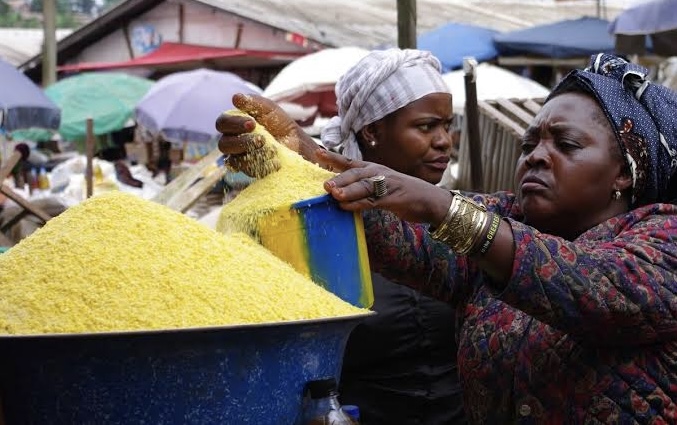BUSINESS
Garri sellers blame naira scarcity for hike in price

Some foodstuff traders in Lagos on Tuesday blamed the naira scarcity for the hike in the prices of cassava granules commonly known as ‘garri’ in the market.
A survey conducted by our reporter in some local markets shows that a paint of garri now sells as high as N1,600, as against the N800 it was in December.
Also, a bag is now N18,500 compared with N13,500 in January.
A foodstuff dealer in Amuwo Odofin, Mrs Judith Amen, said the farmers do not believe in transfers but want cash for their produce, hence the hike.
“The reason for the hike in the prices of garri is mainly due to the cash crunch.
“Presently, I only have one bag in my shop because the farmers are rejecting transfers.
“They do not even want to hear transfers because most of them do not have bank accounts and cannot access the funds even when the funds are transferred.
“We have to buy cash in order to buy the produce from the farmers. So, the cost of buying cash has reflected in the hike in the price of garri.
“The transporters also are not accepting transfers, so until the situation is resolved the hike will persist,” Amen told NAN.
On his part, Mr John Nwabueze, a trader in Alimosho, also attributed the hike to cash crunch.
“The cost of a paint bucket of garri sells between N1,500 and N1,600 due to the difficulties we face in accessing the produce.
“The major reason for the hike is because of the Naira scarcity. The farmers and wholesalers are demanding cash before they supply us garri. Even the transporters are asking for cash.
“The stress of buying cash in Edo and Delta states where the staple food is produced in large quantity has reflected in the present cost of garri.
“It is very difficult for us that do retail sales because we cannot even access the cash as most of our customers do transfers for their purchases,” Nwabueze said.
Another trader, Mrs Queeneth Oloyede, said there was nothing the traders can do about the hike as they have to sell and make returns.
“There has been an increase in the price of garri due to the limited cash in circulation.
“The farmers are complaining and are unwilling to accept transfers.
“There is nothing we can do but to add the charges of buying cash in order not to make loss,” Oloyede said.
Mr Sam Osinachi, a trader in Agege, also blamed the cash scarcity for the hike.
“We really do not know what is going on but there has been a steady increase in the price of garri.
“However, the hike can be closely linked to the cost incurred accessing cash to buy the produce.
“We have no choice but to sell in such a way to make a little profit, hence the hike in the price,” Osinachi said.




 Davido's Net Worth & Lifestyle
Davido's Net Worth & Lifestyle 
